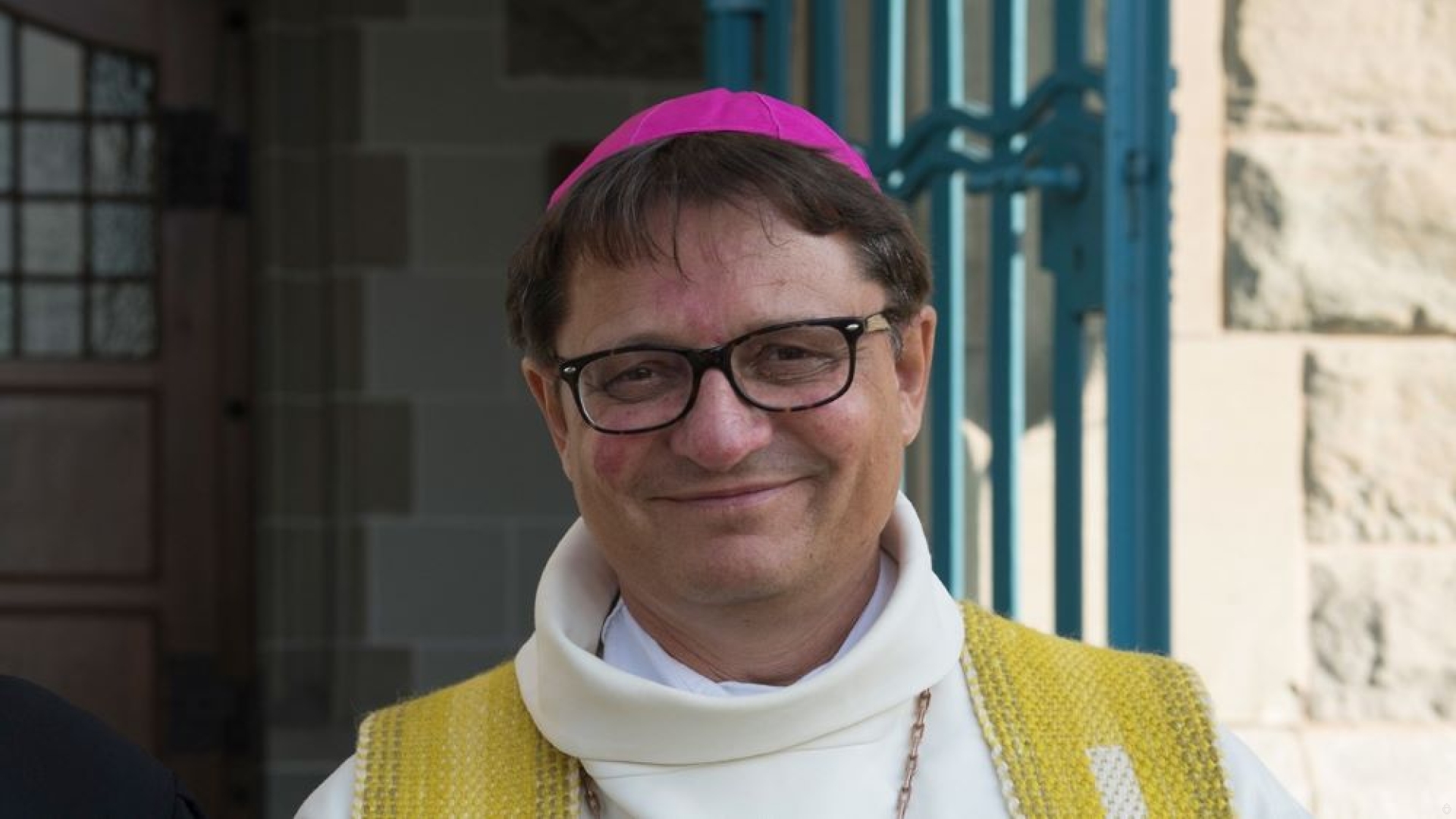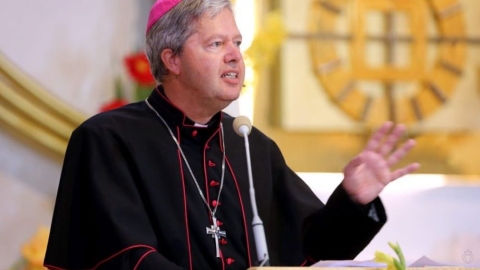Switzerland: Bishop Gmür Calls for an End to Priestly Celibacy

Bishop Felix Gmür
Felix Gmür, Bishop of Basel and president of the Swiss Bishops' Conference (Ces), called for the abolition of celibacy for priests, the admission of women to the priesthood, and a change in Catholic moral doctrine in an interview where he admits errors in the management of sexual abuse cases within the Church in Switzerland.
It is necessary to place this interview in the context of recent Swiss ecclesiastical news, punctuated by the acute turn the abuse crisis has taken in this country.
This bringing to the fore was the result on the one hand of a report produced by the University of Zurich published on September 12, 2023, and on the other hand by a letter from Nicolas Betticher, parish priest of Berne, addressed to the apostolic nuncio, to denounce cases of abuse or concealment, but which was made public by an unknown hand.
Several bishops were quickly implicated: Jean-Marie Lovey, Bishop of Sion; Charles Morerod, Bishop of Lausanne, Geneva and Fribourg; Jean Scarcella, Abbot of Saint-Maurice Abbey; Markus Büchel, Bishop of St. Gall, and Felix Gmür, Bishop of Basel. We must add Cardinal Kurt Koch, former Bishop of Basel.
A preliminary ecclesiastical investigation, concerning several bishops, was initiated by the Dicastery for Bishops, the recipient of Fr. Betticher's letter, and was entrusted to Joseph Bonnemain, Bishop of Chur. In the context of this crisis, a specific threat weighs on the dioceses, linked to the structure that exists in Switzerland, the “dualist” system, even if there is not uniformity according to the various cantons: the parishes and the dioceses are represented in public law by “ecclesiastical corporations.” But these corporations are dependent neither on the priest for the parish, nor on the bishop for the diocese: they are made up of lay people, with some exceptions.
This system is particularly represented in the German-speaking cantons. But, in fact, there are as many variations as there are cantons. Valais is an exception, because it does not have this structure. Let us recall that a similar system, setting up religious associations, was refused by St. Pius X after the spoliation of the property of the clergy which followed the separation of Church and State in France.
However, since the start of this new crisis, the lay leaders of these ecclesiastical corporations have threatened to “cut off funds” from the bishops, because in many cantons, the tax money intended for the Church passes through these structures. The situation is critical for the bishops.
In an interview with the Neue Zürcher Zeitung (NZZ) on September 24, Bishop Felix Gmür declared that the Church had been working on the abuse issue for a long time. The president of the CES believes that the current conditions of the ministry must be questioned.
In general, power in the Church must be better distributed, declared Msgr. Gmür: “I will put pressure on Rome so that the Church decentralizes.” A new sexual morality is needed, as well as the possibility of establishing regulations at the regional level.
The situation is partly about questioning the prevailing conditions. “Celibacy means that I am available to God. But I think that today’s society no longer understands this sign,” says Msgr. Gmür. “The time has come to abolish celibacy. I have no problem imagining married priests,” he added.
According to the Bishop of Basel, the exclusion of women from priestly ordination should also be reduced. “The subordination of women in the Catholic Church is incomprehensible to me. Changes are needed in this area,” he said.
He finally added that the Church “has not yet arrived at the point where it should be” regarding the ban on cohabitation for employees. In other words, the Church should accept irregular situations among those it employs.
Faced with the very difficult situation that the Church is experiencing in Switzerland, instead of turning towards a true and profound conversion, and seeking to give an impulse of holiness to all the clergy, what is the president of the Episcopal Conference of the country doing? He is content with a bad copy-and-paste version of the pernicious, even heretical, products of the German Synodal Path.
All his proposals are nothing but miserable echoes of the German Church. This headlong rush will only add disaster to the disaster.
(Sources : cath.ch/Swissinfo/InfoCatolica/rkz.ch – FSSPX.Actualités)
Illustration : Flickr / EKS-EERS (CC BY-NC 2.0)





